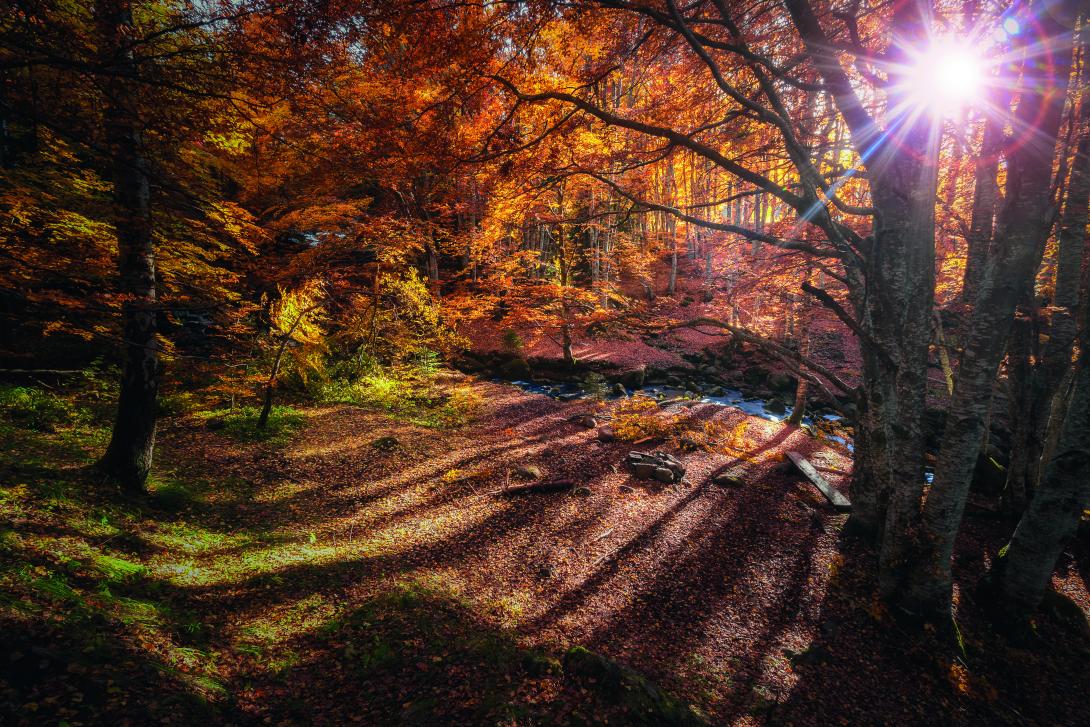
Photo by Veliko Karachiviev | Unsplash
The unprecedented “heat apocalypse” —a phrase coined by French media—that engulfed Europe in July caught the world’s attention. And Europe was not the only place sweltering. These are but the latest examples that indicate that unusual weather patterns are becoming more frequent and extreme. Perhaps now is a good time to revisit Pope Francis’ 2015 encyclical Laudato si’.
The encyclical begins by pointing out that, with his beautiful canticle, “St. Francis of Assisi reminds us that our common home is like a sister with whom we share our life.” This sister now cries out because of the harm we have caused by our irresponsible behavior. “The violence present in our hearts, wounded by sin, is also reflected in the symptoms of sickness evident in the soil, in the water, in the air and in all forms of life.” (1,2)
On a purely scientific level, experts explain that climate change refers to a significant, on-going change in weather patterns and average temperatures. In the 11,000 years before the Industrial Revolution, the average temperature across the world remained stable at around 14°C (57ºF), but since the mid-1800s, humans have been burning fossil fuels at an accelerating rate. As a consequence, the average global temperature has risen by 1.5ºC (2.7ºF) in the last 150 years. This has impacted the environment. Ongoing deforestation, particularly in the Amazon basin, also contributes significantly to the current state of affairs.
In his encyclical, Francis does not remain on a scientific level but reminds us of the vital link between humans and nature. He looks at “environment” in terms of relationship. Nature isn’t simply a space we occupy. “We are part of nature, included in it and thus in constant interaction with it.” For this reason, he concludes, “we are faced not with two separate crises, one environmental and the other social, but rather with one complex crisis which is both social and environmental. Strategies for a solution demand an integrated approach to combating poverty, restoring dignity to the excluded, and at the same time protecting nature.” (139)
This integrated approach is what he refers to as an integral ecology, which is inseparable from the notion of the common good and expressed in a preferential option for the poorest of our brothers and sisters. (156,158)
He goes further: “The notion of the common good also extends to future generations. … We can no longer speak of sustainable development apart from intergenerational solidarity … since the world we have received also belongs to those who will follow us.” (159)
Returning to the theme of the violence present in our hearts, Francis quotes Pope Benedict XVI: “The external deserts in the world are growing because the internal deserts have become so vast.” For this reason, we all are called to an ‘ecological conversion’, which is not merely environmental action, laudable in and of itself. Ecological conversion and an integral ecology go deeper, for they are rooted in our relationship with the Creator, a relationship that is made evident in our relationship with all of his creation. (217,218)
The Pope’s words at Lac Ste. Anne, during his “pilgrimage of penance” to Canada, seem apropos: “In these days,” he said, “I have been struck by the sound of drums that accompanied me wherever I went. This beating of drums seems to echo the beating of so many hearts… Here, immersed in creation, we can also sense another beating: the maternal heartbeat of the Earth… In order to grow as people, we need to harmonize our own rhythms of life with those of creation, which gives us life.”
With material from the UK Met Office













